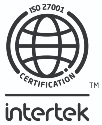INSTANDA named one of Insurance Startups Improving Underwriting

We are delighted that INSTANDA has been named one of insurance startups improving underwriting.
Please read the article below by nanalyze:
One reason Warren Buffet likes the insurance industry is because of the “float”, a term that refers to the amount of money an insurance company has taken in but not yet paid out in claims. “Float” acts as a free loan that can be used for safe investments that only need to be cashed out when a claim is made. This is why insurance companies are so focused on the risks associated with their policies. When an insurance company goes to write a policy on something or someone, they call this process “underwriting”. The process of underwriting needs to uncover as much data as possible and then make sense of it in order to determine a rate that is better than their competitors (so it sells) but able to make a profit (based on the likelihood of a claim). It’s pretty easy to see where tech comes into play here:
Uncover as much data as possible – Big Data
Make sense of it – Artificial Intelligence (AI)
A great example of this can be found in our last article, 10 Artificial Intelligence Startups in Insurance, where we highlighted a Silicon Valley startup called Cape Analytics. With $14 million in funding, this startup has developed a service for property insurers combining machine learning with computer vision and geospatial imagery to do things like analyzing roofs of houses for material type, condition, and building footprint. That’s precisely the type of underwriting improvements that we can expect to see when we start applying big data and AI. The 9 insurance startups we’re going to discuss in this article are using technologies like AI and big data to improve the insurance underwriting process.
Underwriting as a Service

Founded in 2012, London startup Instanda has taken in an undisclosed amount of funding to provide cloud-based insurance software to insurers which allows them to quickly create, manage, and distribute insurance products by automating the underwriting process. The main value adds are speed, flexibility, and a one stop shop as seen below:

They’ve already managed to attract the attention of quite a few brands that are using their software for a specific part or parts of the underwriting process.
Using Scientific Research to Predict Risk

Founded in 2011, California startup Praedicat has taken in $12 million of funding to develop science-based risk analytics for liability insurers and reinsurers under the brand Litagion® Risk Management. Praedicat’s algorithms mine literature (22 million peer-reviewed journals as an example) to extract dynamic metadata about bodily harm such as that which is attributed to nanomaterials, benzene, mobile phones, and other materials. One such material is BPA, an industrial chemical used to make a hard, clear plastic, which is used in many consumer products. Here’s a look at the dangers of BPA based on Praedicat’s analysis:

This company is actually trying to predict the lawsuits of tomorrow that an insurance company may have to pay claims on. With Praedicat’s technology, the underwriting process shifts from risk avoidance to proactively identifying risks using scientific data. This allows insurers to create insurance products based on emerging risks indicated by science such as those presented by products containing BPA.
Data Analysis for Reinsurance

Founded in 2013, QuanTemplate, a startup based in Gibraltar has taken in $10.25 million of funding from investors that include insurance giant Allianz. QuanTemplate is an insurance data management and analytics company providing solutions to underwriters to help them make sense of their portfolio data from premiums and claims, identify the most or least profitable risks, measure and monitor underwriting performance, and organize reports to comply with management or regulatory reporting such as Solvency II Pillar 3. The below diagram shows how AI comes into play:

The Quantemplate solution sits on top of an insurance company’s policy and claims data, integrates 3rd party data, and then gives you lots of useful insights. Apparently it has specific applications in the area of reinsurance. If you’re not familiar with “reinsurance”, it’s pretty much just what the name says. An insurance company may look to reduce particular risks on their books with existing policies they’ve underwritten so they “reinsure” these with other insurance companies.
Social Media for Real-time Insurance

Founded in 2016, California startup Carpe Data has taken in $6.6 million in a single round of funding. This startup provides predictive scoring to support underwriting insurance for personal, auto, life, and even small and micro business that cannot be assessed using traditional commercial credit-based models. Risk scores are available for the 28 million small businesses in the USA like beauty & spa, auto repair, health & fitness, restaurants, and hotels. Here’s a sample commercial risk score for a retail business.

The technology even provides leverage to re-engage with and offer better coverage for customers because the system sends out real-time alerts on significant events in a client’s life like marriage, childbirth, job change or home purchase. Carpe Data leverages the “social web, online content, wearables, connected devices and other forms of next generation data“. Facebook might just determine your insurance premiums in the future.
Quantifying Weather Risk

Founded in 2011, French startup Meteo Protect has taken in $2.63 million of funding. Although, they are declaring themselves an insurance and reinsurance broker, their real strength is using climatology or meteorology to measure the “climate resilience” of businesses using a solution they call Weather Neutral™. Allianz has stated that as much as 3.4% of U.S. GDP is impacted by routine weather variance at a cost of $534 billion. Meteo provides an index-based solution to protect your business against the impact of adverse weather covering industries most at risk such as agriculture and energy.

Once you’ve figured out the effect of bad weather on your profit (or yield) or your ability to absorb additional costs such as loss of supplies like seedlings in the case of agriculture, or drop in power distribution in the case of the energy sector, you can insure those risks to your business.
Wearables for Health Information

Founded in 2013, Georgia startup Big Cloud Analytics has taken in $6.4 million of funding to build the COVALENCE™ Health Analytics Platform that uses wearables and real-time analytics to figure out how healthy you actually are. Also called “predictive analytics”, this process involves taking 50+ biometric data points from wearables and building “health scores” for people as shown in the below diagram:

Insurers can now overlay this biometric data on top of self-reported information from clients like age, marital status, alcohol and tobacco use, allowing for better assessment of risk and reducing fraudulent claims. So much for “only drinking two days a week or so” and being a “social smoker“. Insurers can literally monitor your health real-time with this technology and skip the tedious work of sifting through stale medical records. Another startup in this space we came across was FitSense based out of Singapore which has taken in a small amount of funding and is currently in beta.
Identifying Claims in Casualty Insurance

Founded in 2014, New York startup Tyche has taken in $68,000 in funding to develop an underwriting analysis tool for casualty insurance. Unlike life/health/property insurance, casualty insurance is liability coverage for individuals or an organization. For example, if one of our writers said Kim Kardashian was a talent-less individual who adds no value to society, we couldn’t be sued for libel. We could be sued for libel though if we said something untrue about Kim Kardashian. That’s casualty risk.
Tyche combines machine learning with big data (both open data and proprietary data) to identify the policies that are likely to have claims:

Through the Tyche API, carriers can access “claims avoidance models” that concentrate over 30% of future claims into less than 1% of policies that “would otherwise be bound under a carriers’ existing underwriting standards, allowing carriers to dramatically improve their bottom lines by declining the riskiest fraction of their books“. In other words, pawn all that isht off on someone else using reinsurance.
Finding Obscure Data Relationships with AI

Founded in 2014, DreamQuark is a startup based in France with undisclosed funding that wants to use AI to identify obscure relationships in data. The solution is intended for data analysts with business skills rather than scientific skills who are willing to quickly iterate and crack insurance and banking data challenges. The solution automatically identifies and cleans biases in data, and then highlights the otherwise invisible patterns of interest to generate large incremental value for banks and insurance businesses. Developed from the minds of particle physicists, the end-to-end deep learning framework crunches structured and unstructured data with applications in underwriting, compliance, fraud, leakage or credit risks detection:

Their team of PHDs is an accomplished and rather interesting lot with some strange hobbies and some real bright ideas. Seems like this startup would make for an excellent acqui-hire.
Insights for Life Insurance Providers

Founded in 2016, Atidot, is a startup based in Israel with an undisclosed amount of funding that focuses on applying predictive analytics and machine learning to life insurance, a space where they claim 80% of data isn’t being used strategically. Atidot has already analyzed 4.7 million policies using 500 million data points resulting in a 15% improvement to existing models. The confidence of Atidot maybe based on the fact that two of its founders have served the elite R&D group of Israel’s intelligence community and the other was the Chief Actuary of the Israel Ministry of Finance.
For most people, the $7 trillion insurance industry is about as exciting as – well – an insurance seminar. Throw a bit of technology into the mix though, and then it gets a whole lot more interesting. While Warren Buffet has rightly warned that autonomous driving may turn the auto insurance industry upside down, this may be offset by some of the “insurtech” technologies we’ve just discussed. While the above is not an exhaustive list, it does provide some good examples of the technologies that lower risk for insurers, increase transparency, but unfortunately may not decrease premiums. All those extra profits realized are going straight to the shareholders.
If you pay more than $4.95 a trade, you're paying too much. Ally Invest is one of the lowest-fee brokers around so you spend less money on transaction fees and more on stocks. With more than 30 trades a quarter it drops even lower to $3.95 a trade. Open an account and begin trading today.
Source: nanalyze





